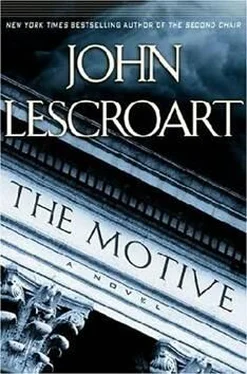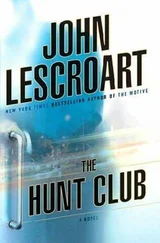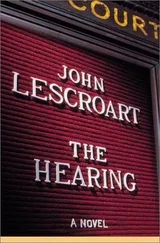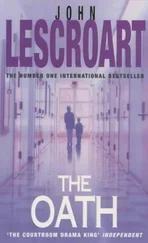In California and several other western states, banks hire a private company to validate addresses and maintain databases on driver's license information, for example. But these verifications only concern themselves with whether the information is properly formatted. That dates of birth are made up of a month, a day and a year, for example. Or that residence addresses are not, in fact, business addresses. Or that there are nine digits in the SSN, broken in the right places-although inactive SSNs due to death are flagged.
Most unbelievably to Glitsky, banks did not even have to try to verify whether a given Social Security number matched a name. Instead, they would open an account with a valid SSN or business tax ID number and accept an accompanying driver's license or other form of ID. If the driver's license had your picture on it, with the name Joe Smith, and it seemed like a valid license, then the bank would take your SSN and list the account under Joe Smith. There was no system in place to identify fraudulent or fictitious names by comparing them to SSNs, or for tying all of this various identification information together.
The 314(a) procedure is straightforward, simple, low-tech. Every two weeks the government compiles a hardcopy list, usually with between fifty and two hundred names, of the government and law enforcement requests and sends it by fax or e-mail to every financial institution in the country. Each one of these institutions, within two more weeks, then must provide information on whether it maintains or has maintained accounts for, or engaged in transactions with, any individual, entity or organization listed in the request. If a match is found, the bank must notify FinCEN with a "Subject Information Form."
And when Glitsky had gotten that form forwarded to him as the requesting party, submitted to FinCEN by Putah Creek Community Bank in Davis, California, he had gone to District Attorney Clarence Jackman in great secrecy. Only Jackman, the judge who'd signed the warrant and Glitsky's wife knew that he had obtained a search warrant for the records referenced in the report.
Downtown Davis was arranged in a grid with lettered streets running north/south and numbered ones east/ west, and Glitsky had no trouble finding the Putah Creek Community Bank at Third and C. It was a small corner building, about half the size of Glitsky's BofA branch in San Francisco. He drove by it, continued on to Fifth and turned right. About a mile farther on, outside the downtown section, he navigated an unexpected roundabout and pulled into the parking lot of a low-rise building that looked new. As an armed on-duty officer from another jurisdiction, he needed to check in with the local police not only as a courtesy, but to try to avoid any of those complicated misunderstandings that sometimes cropped up when dark-skinned men carrying concealed weapons encounter uniformed patrolmen. Glitsky didn't expect anybody to hold a parade in his honor, but it couldn't hurt to have the locals know that he was in town. He
knew that he might also need to make arrangements for support and logistics.
The chief, Matt Wessin, came out and greeted him in the lobby. Ten or more years Glitsky's junior, Wessin exuded health, competence and vigor. The shape of his body indicated that he worked out for a couple of hours every day. His hair bore not a streak of gray either on top or in the clipped military mustache. The face itself was as smooth and unlined as a boy's. But he was every inch a professional cop, first talking privately to Glitsky about the situation in his office, then bringing him into a small conference room to brief a small team of detectives and a couple of patrolmen who he assigned to temporary detail.
"Ladies and gentlemen," he began. There were two women in the room, a lieutenant and a sergeant. He made the introductions, then continued. "By now, you've all had a chance to look over the fax pages that Deputy Chief Glitsky sent down yesterday. He's got some more show-and-tell today, mostly a couple more pictures of the woman he's hoping to locate here in town, although she may already be gone. As these pages indicate, it appears that she's closed up her post office box. She may also have simply abandoned her safe-deposit box, which is down at Putah Creek Community Bank, but the upshot is that her address, if any, is a mystery. I'm going to pass these new pictures around and invite you all to look at them and then review for a minute who we're actually talking about. This isn't something we hear every day, I know, but in this case, I'd take it to heart. She should be considered armed and extremely dangerous.
"She got the deposit box under the name Monica Breque, although she has previous aliases, which include Michelle, or Missy, D'Amiens. If you'll open the files in front of you, you'll see…"
It's two and a half weeks ago, just after lunch on a Monday afternoon.
Glitsky made his 314(a) request more than three weeks ago and hasn't gotten any response yet. An hour ago, Zachary was cleared for a month without the need for more testing, and the dour and cautious Dr. Trueblood even allowed himself what looked like a genuine and even optimistic smile.
Glitsky gets back to his office at the Hall ofJustice in the early afternoon. He greets Melissa, spends a minute giving her the good news about Zachary, then turns left out of the reception area, passes through the small conference room adjacent to it and into the short hallway that leads to his office, where he stops. His door is closed.
When he left for the doctor's appointment three hours ago, he'd left it open. He almost goes back to ask Melissa if she'd locked up for him while he was gone, but then realizes that it's probably nothing. Maybe some cleaning staff, somebody leaving a note, not an issue. So he opens the door.
Inside, on one of the upholstered chairs in front of
Glitsky's desk, in a relaxed posture, slumped even, with his legs crossed, is a man he's never seen before. He's wearing a business suit and looks over at Glitsky's entrance. "You might want to get the door," he says.
Glitsky doesn't move. "Who are you?"
"A friend of Bill Schuyler's." There's no threat in the soft-spoken voice. He points. "You mind? The door?"
Never taking his eyes off him, Glitsky complies. The man returns the gaze for a second, then stands up. He is probably in his forties, tall, slim and pale, half bald with a well-trimmed tonsure of blond hair. He's already got his wallet in his hand and opens it up, flashes some kind of official-looking identification. "Scott Thomas," he says. "You've been making inquiries about Missy D'Amiens. Do you really believe she's still alive?"
"I do. I don't think there's any doubt of it. Are you FBI?"
A small, tidy, almost prim chuckle. "No, I'm sorry. CIA."
Glitsky takes a beat. "I understood she was in witness protection."
"She was. We put her in it, farmed it out to the bureau." Another ironic smile. "The company isn't allowed to operate domestically."
"All right," Glitsky says. "How can I help you?"
"Maybe we should sit down."
"I'm okay on my feet."
Thomas's mouth gives a little twitch. The man clearly isn't used to being gainsaid. His orders, even his suggestions, get followed. His eyes, the pupils as black as a snake's, show nothing resembling emotion. "It might take a minute," he says in a pleasant tone. "We'll be more comfortable." He sits again, back in the easy chair, and waits until Glitsky finally gives up, crosses behind his desk and lowers himself into his chair.
"I want to tell you a story," Thomas says. In the next hour, Glitsky hears about a young woman, born Monique Souliez in 1966 in Algiers. The sixth child and youngest daughter of a very successful French-trained surgeon, she, too, was schooled in France. Linguistically talented, she traveled widely during her vacations-within Europe over several summers, Singapore another, San Francisco, Sydney, Rio. But she came from a well-established and very closely knit family, and when her formal education was completed in 1989, she returned to Algeria, where she took a job in junior management at the local branch of the Banque National de Paris and soon fell in love with a young doctor, Philippe Rouget.
Читать дальше












